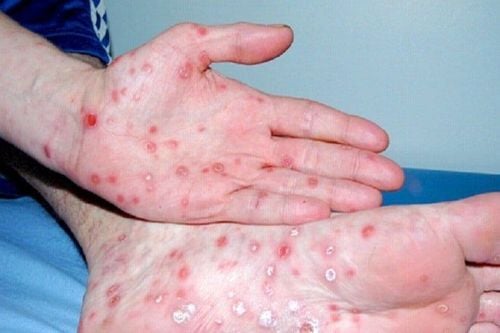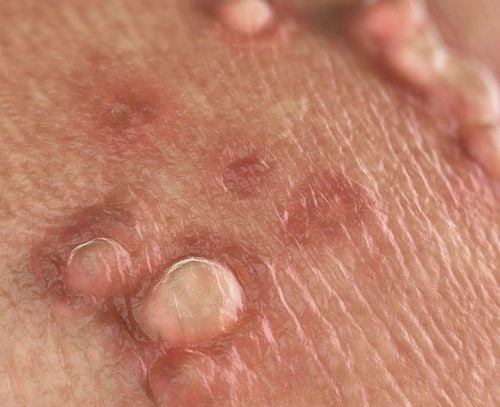Syphilis is a highly contagious sexually transmitted infection that can be acquired through vaginal, anal, and oral sex. Individuals with syphilis often remain asymptomatic and may unwittingly transmit the infection to sexual partners. Untreated syphilis can lead to severe health complications including arthritis, neurological damage, and blindness.
1. Causes of syphilis
Syphilis is caused by the bacterium Treponema pallidum. Transmission occurs through direct contact with a chancre (syphilis sore) during sexual activity, including vaginal, anal, and oral intercourse. These chancres can be found on or around the penis, vagina, anus, or in the rectum, on the lips, or in the mouth. Syphilis can be passed from a mother to her baby during pregnancy.
Syphilis is not transmitted through casual contact such as sharing toilet seats, doorknobs, swimming pools, hot tubs, bathtubs, clothing, or eating utensils.

2. Symptoms Across Stages of Syphilis
Syphilis is classified into four stages (primary, secondary, latent, and tertiary), each with distinct signs and symptoms.
Primary Syphilis
In primary syphilis, patients may present with one or more chancres at the inoculation site, including the vulvar margins, labia majora, labia minora in females, and the urethral meatus, glans penis, penis, or scrotum in males. The chancre is typically a shallow ulcer with a round or oval morphology, indurated base, and painless nature, which can contribute to delayed diagnosis. This stage generally lasts 3 to 6 weeks and resolves spontaneously, irrespective of treatment. However, even with resolution of the chancre, continued treatment is crucial to prevent progression to secondary syphilis.
Secondary Stage
During the secondary stage, patients may experience skin rash and/or mucous membrane lesions, such as ulcers in the mouth, vagina, or anus. This stage typically begins with a rash affecting one or more areas of the body. The rash may appear while the chancre is healing or several weeks after the chancre has resolved. The rash often presents as rough, red or reddish-brown spots on the palms of the hands and/or soles of the feet. The rash is typically non-pruritic and can sometimes be so faint that patients may not even notice it.
Other symptoms include fever, lymphadenopathy, sore throat, patchy hair loss, headache, weight loss, myalgia, and fatigue. These secondary syphilis symptoms will also resolve spontaneously, regardless of treatment. Without appropriate treatment, the infection will progress to the latent and tertiary stages of syphilis.
Latent Stage
The latent stage of syphilis is a period during which infected individuals exhibit no signs or symptoms of the disease. Without treatment, individuals will remain infected with syphilis for many years without experiencing any signs or symptoms, thereby facilitating transmission to others.
Tertiary Stage
Most untreated individuals with syphilis do not progress to the tertiary stage. However, when it does occur, it can affect multiple organ systems, including the heart and blood vessels, brain, and nervous system, and can lead to death. Tertiary syphilis is extremely serious and typically occurs 10 to 30 years after the initial infection with the syphilis bacteria. For example, without treatment, the syphilis bacteria can spread to the brain and nerves (neurosyphilis) or to the eyes (ocular syphilis).
Clinical symptoms of neurosyphilis can include:
- Intense headaches
- Impaired muscle coordination
- Paralysis
- Dementia
Symptoms of ocular syphilis include: visual impairment and blindness.
3. How to reduce the risk of Syphilis?
The only absolute way to avoid sexually transmitted infections (STIs), including syphilis, is to not have vaginal, anal, or oral sex.
If engaging in sexual activity, the following measures can reduce the risk of contracting syphilis:
- Maintaining a mutually monogamous relationship with a partner who has been tested and confirmed to be free of syphilis.
- Using condoms correctly every time during sexual intercourse. Condoms prevent syphilis transmission by blocking contact with chancres. However, chancres can sometimes occur in areas not covered by a condom, therefore, transmission can still occur if contact is made with these lesions.

4. Does pregnancy affect the fetus?
If a pregnant woman has syphilis, the fetus can acquire congenital syphilis through transplacental transmission. Complications include low birth weight, premature birth, or stillbirth. To protect the fetus, pregnant women should be screened for syphilis at least once during pregnancy. If the test is positive, the pregnant woman should receive immediate treatment to prevent complications for the fetus.
An infected infant may be born without signs or symptoms of syphilis. However, without prompt treatment, the infant can develop serious problems within a few weeks after birth. Untreated congenital syphilis can lead to complications such as cataracts, deafness, or seizures, and can be fatal.
Vinmec International General Hospital provides a comprehensive Sexually Transmitted Disease (STD) Screening Package designed for early detection and effective intervention to prevent potential complications. This package is suitable for all ages, both male and female.
When registering for the STI screening package, clients will receive: dermatological consultation; laboratory investigations: rapid HIV antibody testing, rapid Chlamydia antigen detection, rapid Treponema pallidum antibody testing, qualitative and quantitative Treponema pallidum TPHA, microscopic examination with Gram staining for bacterial identification, and microscopic examination with fungal staining for fungal identification…
To arrange an appointment, please call HOTLINE or make your reservation directly HERE. You may also download the MyVinmec app to schedule appointments faster and manage your reservations more conveniently.













